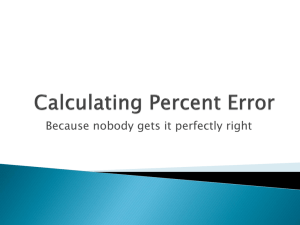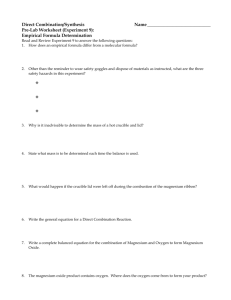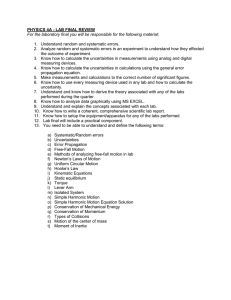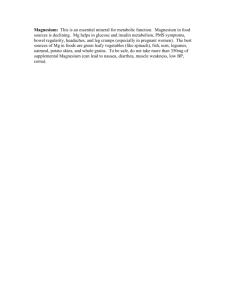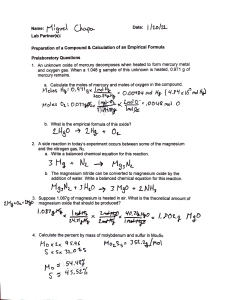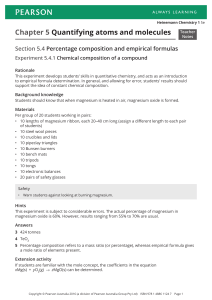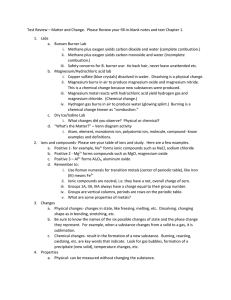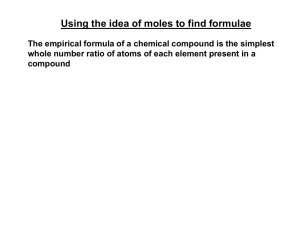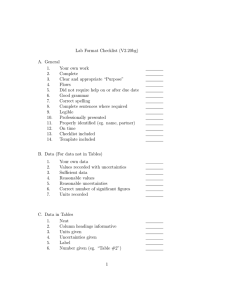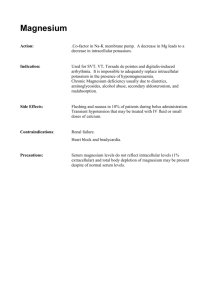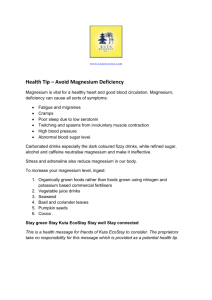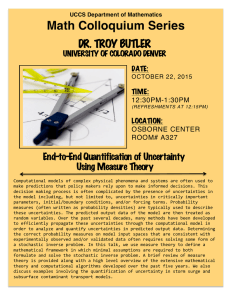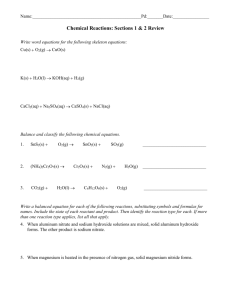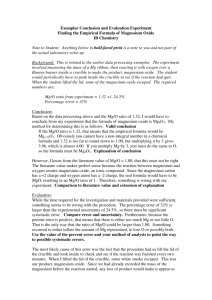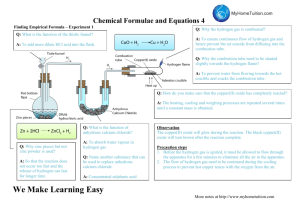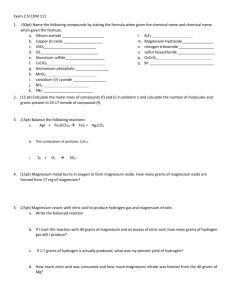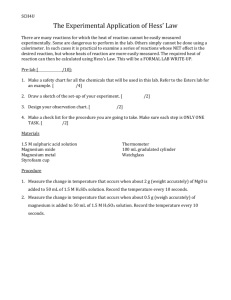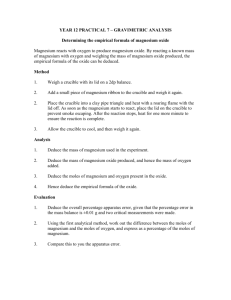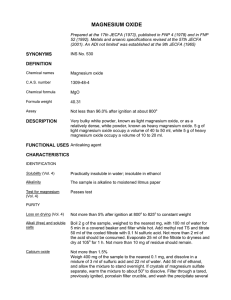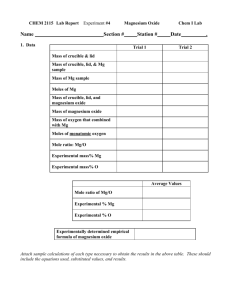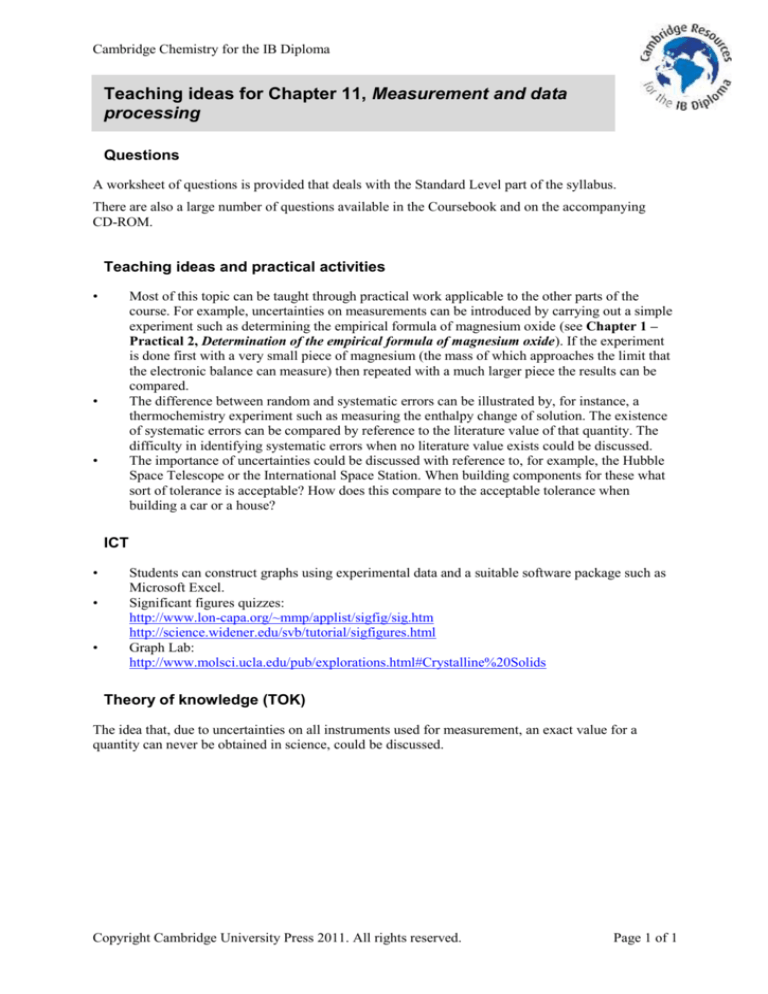
Cambridge Chemistry for the IB Diploma
Teaching ideas for Chapter 11, Measurement and data
processing
Questions
A worksheet of questions is provided that deals with the Standard Level part of the syllabus.
There are also a large number of questions available in the Coursebook and on the accompanying
CD-ROM.
Teaching ideas and practical activities
•
Most of this topic can be taught through practical work applicable to the other parts of the
course. For example, uncertainties on measurements can be introduced by carrying out a simple
experiment such as determining the empirical formula of magnesium oxide (see Chapter 1 –
Practical 2, Determination of the empirical formula of magnesium oxide). If the experiment
is done first with a very small piece of magnesium (the mass of which approaches the limit that
the electronic balance can measure) then repeated with a much larger piece the results can be
compared.
The difference between random and systematic errors can be illustrated by, for instance, a
thermochemistry experiment such as measuring the enthalpy change of solution. The existence
of systematic errors can be compared by reference to the literature value of that quantity. The
difficulty in identifying systematic errors when no literature value exists could be discussed.
The importance of uncertainties could be discussed with reference to, for example, the Hubble
Space Telescope or the International Space Station. When building components for these what
sort of tolerance is acceptable? How does this compare to the acceptable tolerance when
building a car or a house?
•
•
ICT
•
•
•
Students can construct graphs using experimental data and a suitable software package such as
Microsoft Excel.
Significant figures quizzes:
http://www.lon-capa.org/~mmp/applist/sigfig/sig.htm
http://science.widener.edu/svb/tutorial/sigfigures.html
Graph Lab:
http://www.molsci.ucla.edu/pub/explorations.html#Crystalline%20Solids
Theory of knowledge (TOK)
The idea that, due to uncertainties on all instruments used for measurement, an exact value for a
quantity can never be obtained in science, could be discussed.
Copyright Cambridge University Press 2011. All rights reserved.
Page 1 of 1

